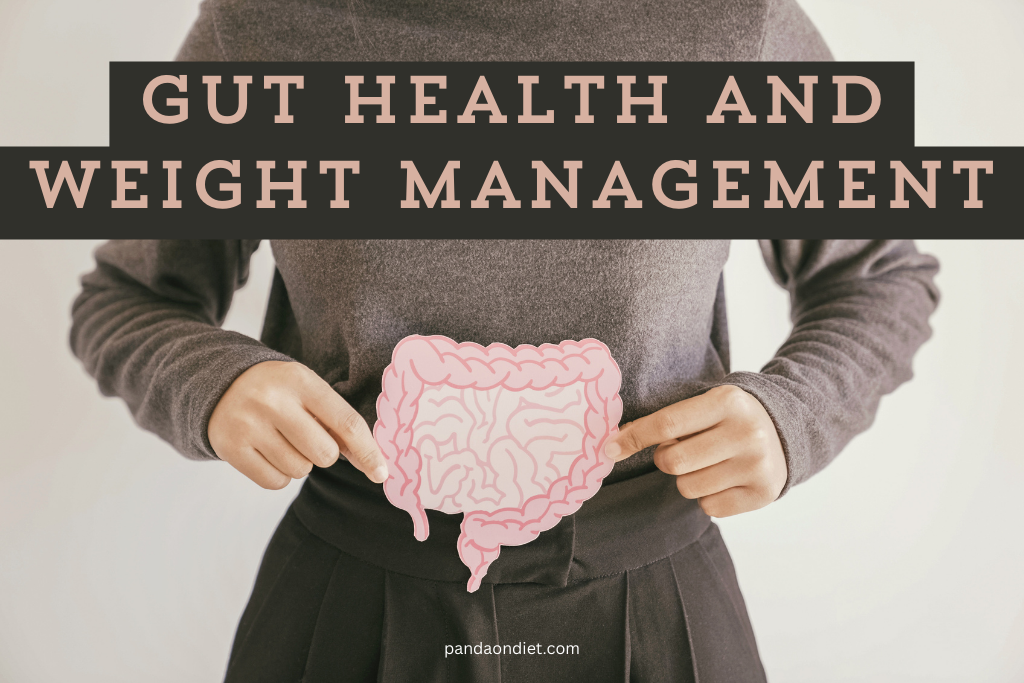Have you ever wondered how your gut affects your weight? It’s amazing how much our gut health influences not just digestion, but our overall well-being, including our weight. The connection between gut health, digestion, and weight regulation is crucial and often overlooked.
Join me as we dive into this fascinating topic and discover some practical and delicious ways to improve your gut health through diet. Ready to explore how you can boost your well-being from the inside out? Let’s get started!
Connection Between Gut Health, Digestion, and Weight Regulation
Your gut, also known as the gastrointestinal tract, is home to trillions of bacteria and other microorganisms collectively called the gut microbiome. This complex ecosystem, consisting of a diverse array of bacteria, viruses, fungi, and other microbes, is unique to each individual, much like a fingerprint.
These tiny organisms play a significant role in various bodily functions, contributing to overall health and well-being.
- Gut Health and Digestion
A healthy gut microbiome aids in the digestion and absorption of nutrients. Beneficial bacteria help break down food, produce essential vitamins, and prevent harmful bacteria from causing infections.
When your gut is healthy, digestion runs smoothly, and your body can efficiently extract nutrients from the food you eat.
- Gut Health and Weight Regulation
The balance of bacteria in your gut can influence your weight. Studies have shown that people with obesity tend to have a different composition of gut bacteria compared to lean individuals.
Certain bacteria can increase the amount of energy extracted from food, leading to weight gain. Additionally, gut bacteria can influence how fat is stored and how hormones that regulate appetite are released, impacting your overall weight.
- Immune Response
A significant portion of the immune system resides in the gut, making the gut microbiome a critical player in immune function. The beneficial bacteria in the gut help train the immune system to distinguish between harmful invaders and the body’s tissues. This reduces the risk of autoimmune diseases and infections.
Moreover, these microorganisms produce substances that can enhance the immune system’s effectiveness in combating pathogens.
- Mood Regulation
The gut-brain axis is a complex communication network linking the gut and the brain. The gut microbiome produces neurotransmitters such as serotonin, dopamine, and gamma-aminobutyric acid (GABA), which are vital for mood regulation.
An imbalance in gut bacteria has been associated with mental health conditions such as anxiety, depression, and stress. By maintaining a healthy gut, you can positively influence your mental well-being and emotional health.
Ways to Improve Gut Health Through Diet
Maintaining a healthy gut is essential for weight management. Here are some dietary tips to promote a balanced gut microbiome:
- Eat a Diverse Range of Foods
A varied diet leads to a diverse microbiome, which is beneficial for gut health. Include plenty of fruits, vegetables, whole grains, and legumes in your meals.
- Consume Fermented Foods
Fermented foods like yogurt, kefir, sauerkraut, kimchi, and kombucha are rich in probiotics, which are live beneficial bacteria. These foods can enhance the diversity and function of your gut microbiome.
- Increase Fiber Intake
Fiber is a key component for gut health as it serves as food for your gut bacteria. Foods high in fiber include beans, lentils, oats, and vegetables. Aim to include both soluble and insoluble fiber in your diet.
- Limit Sugar and Artificial Sweeteners
High sugar intake and artificial sweeteners can disrupt the balance of bacteria in your gut, leading to an overgrowth of harmful bacteria. Opt for natural sweeteners and reduce your intake of sugary foods and beverages.
- Stay Hydrated
Drinking plenty of water is essential for the mucosal lining of the intestines and helps balance good bacteria in the gut. Make sure to drink adequate water throughout the day.
FAQs
How does stress affect gut health?
Stress can negatively impact gut health by altering the gut microbiome composition and increasing gut permeability, leading to digestive issues and affecting overall weight management.
Can antibiotics harm my gut health?
Yes, antibiotics can disrupt the balance of gut bacteria by killing both harmful and beneficial bacteria. It’s important to use antibiotics only when necessary and to follow up with probiotics to restore the gut microbiome.
Are there specific foods to avoid for better gut health?
Yes, it’s best to avoid processed foods, high-sugar items, and artificial sweeteners, as they can harm the balance of bacteria in your gut and negatively impact your weight.
How quickly can I see changes in my gut health with dietary changes?
Improvements in gut health can vary, but positive changes can be noticed within a few days to a few weeks of making dietary adjustments.
Are there supplements that can help improve gut health?
Probiotic and prebiotic supplements can support gut health, but it’s best to consult with a healthcare professional before starting any new supplement regimen.
Final Words
Taking care of your gut health is a vital step towards achieving and maintaining a healthy weight. By incorporating a variety of nutrient-rich foods, fermented products, and fiber into your diet, you can foster a balanced gut microbiome that supports your overall well-being. Remember, a healthy gut means a healthier you!

